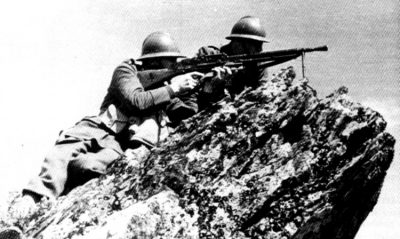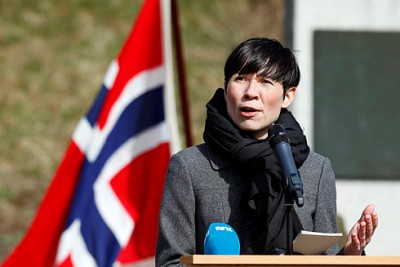The Norwegian government was catching flak this week for once again refusing to award medals to many World War II veterans, especially resistance forces that were attached to the communist movement at the time. Defense Minister Ine Eriksen Søreide could choose from more than 1,200 candidates submitted by experts and the public, but opted against giving any of them the country’s highest honours.

Søreide cited the results of a report from the “project group” commissioned to determine whether there was documented basis for awarding new war medals, more than 70 years after the war ended. Many of the medals would be awarded posthumously.
“Their conclusion is that there is no foundation for awarding more medals for contributions during the Second World War in an adequately documented and fair manner,” Søreide stated in a press release made public late Friday afternoon. Many critics believe her decision was intentionally released just before the weekend to lessen its impact and reduce publicity.
That backfired during the weekend, when it was snapped up and reported by newspapers including Aftenposten and Dagsavisen. Both quoted critics including historians who had advised the project group and claimed they had plenty of documentation for heroic acts during the war.
Communist heroes overlooked
Lars Borgersrud, who was one of three historians in the so-called “reference group” that advised the project group, told Dagsavisen that medals including the coveted Krigskors (War Cross) “were mostly given to Norwegians tied to British military operations, while none were awarded to Soviet military operations or the communist resistance groups.”
He said the communist party in Norway compiled a list of more than 200 Norwegians who were killed in battles resisting the Nazi German occupation of Norway that lasted from 1940 to 1945. According to Norwegian statutes, Borgersrud said, they should have qualified for war medals post-mortem, “but none of the communist resistance fighters have received a medal.” He claimed that Søreide’s demands for “documented and fair” treatment of war heroes thus fall flat.
Marit Nybakk, a Member of Parliament for the Labour Party, was also critical over the government’s decision against awarding any new medals. She said the reference group could indeed document that there were several members of the communist-oriented Osvald- and Pelle- resistance groups, along with the Finnmarkspatriotene in Northern Norway, “who should have won the same possibility” for medals as the more established resistance groups like Kompaniet Linge had.
“When we’re now closing the occupation chapter, we should show generosity and now continue to treat (war heroes) differently, for example those in Finnmarkspatriotene and Kompaniet Linge, because the patriots were tied to the communist party,” Nybakk told Dagsavisen. “King Harald apologized for that back in 1992.”

Søreide, however, responded that she did not want to overrule the project group. “Based on the historians’ clear recommendation and conclusions, the government believes there should be no further awarding of the War Cross with Sword, the St Olav’s Medal and the War Medal for contributions during World War II now,” Søreide wrote to Nybakk. “It would not be correct to politially overrule their clear recommendation.”
Søreide also claimed that the lack of medals does not mean a lack of recognition. A few years ago, for example, memorials honouring the Osvald- and Pelle groups were unveiled in Oslo.
Critics weren’t satisfied, with newspaper Aftenposten reporting that the entire effort to identify and honour other war heroes has now been reduced to a book project. Much of the information uncovered will now be compiled in book form.
Historian Kjetil Erling Henriksen, who led the project group, told Aftenposten he can understand that many people are now surprised, disappointed and even angry that no medals will be awarded to any of the more than 1,200 candidates put forward. They included many other Norwegians, including the uncle of former Prime Minister Kåre Willoch, whose ship was sunk by German forces at Narvik on invasion day, April 9, 1940.
“But we did not have good enough documentation for what various individuals had done,” Henriksen told Aftenposten. “We couldn’t recommend more decorations for the Second World War.” The reference group advising him and his colleages feels badly treated. Most of the 1,200 names proposed, also by ordinary citizens on the urging of Søreide two years ago, have not been released so far.
newsinenglish.no/Nina Berglund

